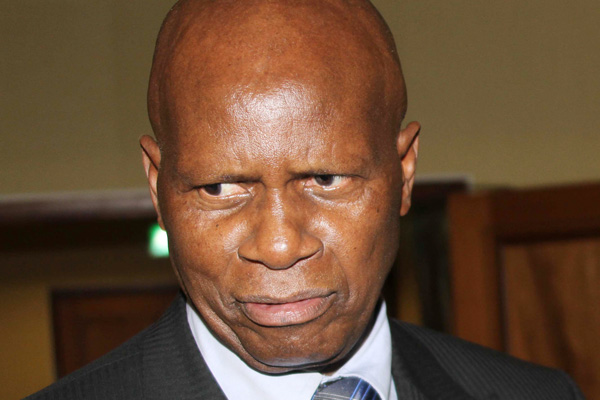
THE African Development Bank (AfDB) has encouraged the government and the rest of African leaders to mobilise domestic resources as sub-Saharan Africa records the lowest rate of domestic savings.
BY TATIRA ZWINOIRA
The Africa Capacity Report (ACR) 2015 showed that sub-Saharan Africa had the lowest rate of domestic savings compared to other regions in the world such as Europe and Latin America.
The low domestic savings rate comes as the continent generates about $500 billion in domestic taxes at the end of 2014.
Speaking at the African Capacity Building Foundation silver jubilee celebrations in Harare last week, AfDB officer-in-charge of the Zimbabwe field office, Mary Monyau said thinking differently would unlock potential of the natural resource wealth in the individual countries.
“Africa today generates about $500 billion in domestic taxes. The bank, therefore, encourages African leaders to think differently to mobilise all these domestic resources and unlock potential of the natural resource wealth and agriculture to accelerate development. Capacity building efforts should therefore be geared in this direction, among others,” Monyau said.
“Africa certainly has untapped potential to generate the resources needed for its socio-economic transformation.
“Remittances to Africa have risen from $11 billion in 2000 to over $62 billion in 2014. Sovereign Wealth Funds assets under management in Africa have risen from $114 billion in 2009 to $162 billion in 2014. Pension funds currently stand at $334 billion.”
- Chamisa under fire over US$120K donation
- Mavhunga puts DeMbare into Chibuku quarterfinals
- Pension funds bet on Cabora Bassa oilfields
- Councils defy govt fire tender directive
Keep Reading
According to the ACR 2015 report, Zimbabwe has an average tax effort of 1,59 on a scale between 0 and 2, showing the country has a high tax effort well above the median tax/gross domestic product average in sub-Saharan Africa.
Tax effort is an index measure of how well a country is doing in terms of tax collection, relative to what could be reasonably expected given its economic potential. On the index, two is the highest with zero being the lowest.
However, with the economy in constant tailspin, more and more companies and individuals have been unable to meet their tax obligations which escalated during the year under review into this year. This has led to domestic mobilisation being more difficult.
In 2015, the Zimbabwe Revenue Authority had net collections of $3,5 billion, missing the targeted revenue of $3,76 billion.
Unlocking the potential of natural resource wealth has always proven difficult for government due to low capacity and failure to implement policies.
Finance minister Patrick Chinamasa said Zimbabwe was the worst in terms of economic challenges, but said the country managed to honour all its subscriptions to African organisations.
“Where we stand right now is that our policies are coherent and what we just need is implementation. We need to commit funds for capacity building for development purposes,” Chinamasa said.
“We [Zimbabwe and Africa] need to grow 8% to 10% sustainably for the next 10 to 15 years for growth. We need to foster dialogue between the public and private sector, develop viable business practices and align financial incentives.”
He said there was need to accept ownership of “our problems” in order to move forward.











